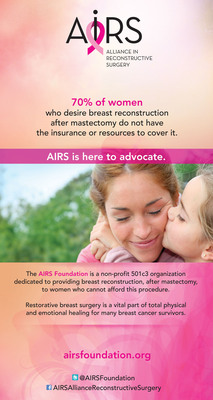
This not-for-profit foundation, founded in 2012, is committed to providing women worldwide access to reconstructive breast surgery post-mastectomy, up-to-date training for physicians, as well as necessary funding.
Studies have shown restorative breast surgery is essential to a breast cancer survivor’s complete physical and emotional recovery, but as much as 70% of these brave women cannot afford it.
Dr. Rohrich is a Distinguished Teaching Professor in the Department of Plastic Surgery at UT Southwestern Medical Center in Dallas, for which he was the founding Chair. He has also served as the President of the American Society of Plastic Surgeons, the world’s largest consortium of board certified plastic surgeons, and has been selected several times as one of the country’s best doctors.
During his talk, he commented on how much of today’s discussions and findings on breast cancer tend to focus on prevention, and early screening and diagnosis, and that the life-altering implications of a mastectomy are not given enough thought as an important component in the overall healing of a woman. He describes reconstructive surgery as a highly beneficial procedure for survivors’ outlook, feeling of “wholeness”, and return to normal life.
[adrotate group=”3″]
“It’s a little known fact that a significant number of women who would choose to have reconstructive surgery are not able to because of the cost. AiRS is a one-of-a-kind organization, which fills this need and is dedicated to supporting and funding a woman’s right to restoration, education, health, and wholeness,” Dr. Rod Rohrich said in a press release. “As a surgeon who does both reconstructive and cosmetic surgery, I was inspired to launch AiRS with Morgan and Janet. We wanted to create an organization that offered education not only to patients and their caregivers but also to the medical community, for enhanced treatment and outcomes.”
In other news on reconstructive breast surgery, a study published earlier this month from the Postgraduate Medical Institute of Anglia Ruskin University suggests pre-operative thromboembolic events, such as indwelling venous access devices in neoadjuvant chemotherapy, can potentially delay or modify breast reconstruction plans by as much as 3 months.

